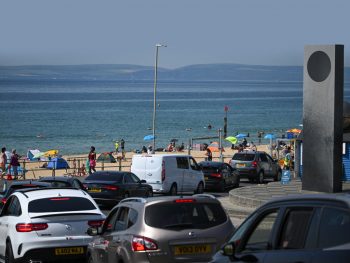A quarter of Brits drive non-stop for five hours or more in Europe
Drivers more likely to attempt extremely long drives when abroad than in the UK and a large proportion of drivers aren’t aware that UK, not GB stickers must now be displayed, new research shows.
More than a quarter of drivers (27%) who have taken their own cars abroad to continental Europe have driven non-stop for five or more hours, with one-in-10 having done so for upwards of seven hours, putting their safety and that of their passengers and other road users at risk, a new survey by RAC European Breakdown shows.
The research, conducted among 2,500 UK drivers of which four-in-10 (39%) have driven in Europe, also shows the extent to which drivers are prepared to drive for longer when going abroad, with 16% saying they’ve driven without a rest for six or more hours when overseas versus 12% who have done so this side of the Channel. Compared to the one-in-10 (10%) who say they’ve driven seven or more hours when abroad, just 6% admit to doing so in the UK.
Men are also significantly more likely to drive for longer than women, the figures show. Three-in-10 (31%) male drivers have driven without a break on the continent for five or more hours, while a fifth (19%) admit to doing so for six hours and upwards. This compares to 18% of women who have driven non-stop in Europe for five or more hours, and around one-in-10 (11%) who have done so for six or more hours.
With the Highway Code recommending drivers take a break of at least 15 minutes for every two hours of driving and EU rules stating that drivers of goods vehicles, buses and coaches must take a break of at least 45 minutes for every four-and-a-half hours of driving, the RAC’s figures highlight the unnecessary risk that UK motorists are putting themselves, their passengers and other road users at by going so long without a rest.
The research also looked at the extent to which drivers are changing their holiday plans this year as a result of the cost-of-living crisis. Nearly a fifth (17%) say they will be cutting back on their spending while on holiday, with 10% taking a shorter break in order to keep their costs down. But interestingly, while nearly one-in-10 (9%) will stay in the UK rather than go abroad, 3% will do the reverse – travel to France or beyond in order to save money.
When it comes to what to do in the event of an emergency, the survey also found that less than three-in-10 drivers (28% – of those who have driven in mainland Europe) know the correct phone number to ring to contact the emergency services to ring in Europe (112). Nearly half (48%) don’t know what the right phone number is, while 8% think it is 999 (which only works in the UK), 7% think it is 111 (the non-emergency line for the NHS in the UK) and 5% think it is 101 (the number to reach police forces in a non-emergency situation in the UK).
As of last September, drivers must also display the letters ‘UK’ on their vehicles when taking them out of the United Kingdom, yet 24% of drivers travelling to Europe this summer said they still intend to display a GB sticker with 12% relying on the ‘GB’ letters on their number plates. Interestingly, 16% don’t plan on displaying any sort of country identifier at all.
RAC Europe spokesman Rod Dennis said: “Tiredness kills so the fact that such a large proportion of drivers are prepared to go for so long without taking a break when driving on the other side of the Channel is alarming. Add in the fact that the number of road deaths in countries including France, Belgium and Italy are so much higher than in the UK and it’s clear drivers are putting themselves at risk by going for so long without a stop.”













